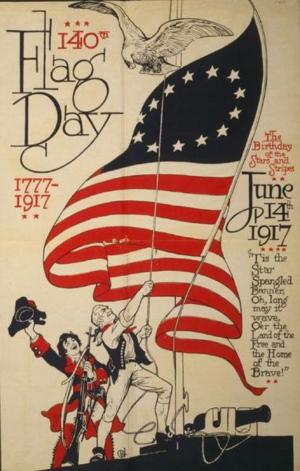Farmer George (Complete)
Nonfiction, Religion & Spirituality, New Age, History, Fiction & Literature| Author: | Lewis Melville | ISBN: | 9781465530400 |
| Publisher: | Library of Alexandria | Publication: | March 8, 2015 |
| Imprint: | Language: | English |
| Author: | Lewis Melville |
| ISBN: | 9781465530400 |
| Publisher: | Library of Alexandria |
| Publication: | March 8, 2015 |
| Imprint: | |
| Language: | English |
This work is an attempt to portray the character of George III and to present him alike in his private life and in his Court. It is, therefore, not essential to the scheme of this book to treat of the political history of the reign, but it is impossible entirely to ignore it, since the King was so frequently instrumental in moulding it.[1] Only those events in which he took a leading part have been introduced, and consequently these volumes contain no account of Irish and Indian affairs, in which, apart from the Catholic Emancipation and East India Bills, the King did not actively interest himself. This difficulty was not met with by the author when writing a book on the life and times of George IV,[2] because that Prince had little to do with politics. It is true that he threw his influence into the scale of the Opposition as soon as, or even before, he came of age, but this was for strictly personal reasons. Fox and Sheridan were the intimates of the later years of his minority, and his association with them gave him the pleasure of angering his father: it was his protest against George III for refusing him the income to which he considered himself, as Prince of Wales, entitled. He had, however, no interest in politics, as such, either before or after he ascended the throne; and, indeed, as King, the only measure that interested him was the Bill for the emancipation of the Catholics, which he opposed because resistance to it had made his father and his brother Frederick popular. With George III the case was very different. He came to the throne in his twenty-third year, with his mOther's advice, "Be King, George," ringing in his ears, and, fully determined to carry out this instruction to the best of his ability, he was not content to reign without making strenuous efforts to rule. "Farmer George," the nickname that has clung to him ever since it was bestowed satirically in the early days of his reign, has come, except by those well versed in the history of the times, to be accepted as a tribute to his simple-mindedness and his homely mode of living. To these it will come as a shock to learn that "Farmer George" was a politician of duplicity so amazing that, were he Other than a sovereign, it might well be written down as unscrupulousness. Loyalty, indeed, seems to have been foreign to his nature: he was a born schemer. When the Duke of Newcastle was in power, George plotted for the removal of Pitt, knowing that the resignation of the "Great Commoner" must eventually bring about the retirement of the Duke, and so leave Bute in possession of supreme authority. When within a year "The Favourite" was compelled to withdraw, George, unperturbed, appointed George Grenville Prime Minister, but finding him unsubservient, intrigued against him, was found out, compelled to promise to abstain from Further interference against his own ministers, broke his word again and again, and finally brought about the downfall of Grenville, who was succeeded by the Marquis of Rockingham. Again George employed the most unworthy means to get rid of Rockingham, and during the debates on the repeal of the Stamp Act encouraged his Household to vote against the Government, assuring them they should not lose their places, indeed would rise higher in his favour, because of their treachery to the head of the Administration of the Crown; and all the while he was writing encouraging notes to Rockingham assuring him of his support! This strange record of underhand intrigues has been traced in the following pages
This work is an attempt to portray the character of George III and to present him alike in his private life and in his Court. It is, therefore, not essential to the scheme of this book to treat of the political history of the reign, but it is impossible entirely to ignore it, since the King was so frequently instrumental in moulding it.[1] Only those events in which he took a leading part have been introduced, and consequently these volumes contain no account of Irish and Indian affairs, in which, apart from the Catholic Emancipation and East India Bills, the King did not actively interest himself. This difficulty was not met with by the author when writing a book on the life and times of George IV,[2] because that Prince had little to do with politics. It is true that he threw his influence into the scale of the Opposition as soon as, or even before, he came of age, but this was for strictly personal reasons. Fox and Sheridan were the intimates of the later years of his minority, and his association with them gave him the pleasure of angering his father: it was his protest against George III for refusing him the income to which he considered himself, as Prince of Wales, entitled. He had, however, no interest in politics, as such, either before or after he ascended the throne; and, indeed, as King, the only measure that interested him was the Bill for the emancipation of the Catholics, which he opposed because resistance to it had made his father and his brother Frederick popular. With George III the case was very different. He came to the throne in his twenty-third year, with his mOther's advice, "Be King, George," ringing in his ears, and, fully determined to carry out this instruction to the best of his ability, he was not content to reign without making strenuous efforts to rule. "Farmer George," the nickname that has clung to him ever since it was bestowed satirically in the early days of his reign, has come, except by those well versed in the history of the times, to be accepted as a tribute to his simple-mindedness and his homely mode of living. To these it will come as a shock to learn that "Farmer George" was a politician of duplicity so amazing that, were he Other than a sovereign, it might well be written down as unscrupulousness. Loyalty, indeed, seems to have been foreign to his nature: he was a born schemer. When the Duke of Newcastle was in power, George plotted for the removal of Pitt, knowing that the resignation of the "Great Commoner" must eventually bring about the retirement of the Duke, and so leave Bute in possession of supreme authority. When within a year "The Favourite" was compelled to withdraw, George, unperturbed, appointed George Grenville Prime Minister, but finding him unsubservient, intrigued against him, was found out, compelled to promise to abstain from Further interference against his own ministers, broke his word again and again, and finally brought about the downfall of Grenville, who was succeeded by the Marquis of Rockingham. Again George employed the most unworthy means to get rid of Rockingham, and during the debates on the repeal of the Stamp Act encouraged his Household to vote against the Government, assuring them they should not lose their places, indeed would rise higher in his favour, because of their treachery to the head of the Administration of the Crown; and all the while he was writing encouraging notes to Rockingham assuring him of his support! This strange record of underhand intrigues has been traced in the following pages















